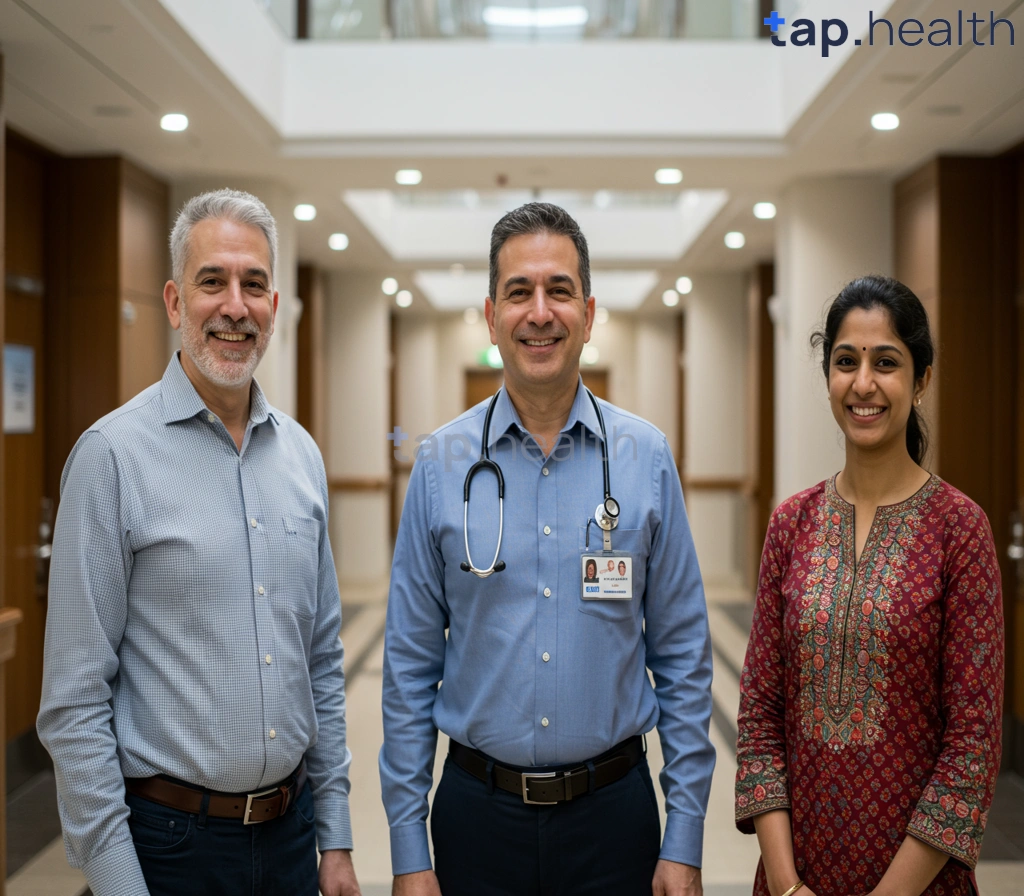Table of Contents
- Arizona Endocrinology Fellowship: Your Application Guide
- Diabetes & Metabolism Fellowship: Arizona Program
- How to Apply for an Arizona Endocrinology Fellowship
- Mastering the Arizona Endocrinology Fellowship Application
- Arizona Endocrinology Fellowship: Requirements & Tips
- Frequently Asked Questions
- References
Thinking about specializing in endocrinology, diabetes, and metabolism? Landing a fellowship is a crucial next step, and navigating the application process can feel overwhelming. This comprehensive guide focuses specifically on the Arizona Endocrinology, Diabetes & Metabolism Fellowship, providing you with the insights and advice you need to make a strong application. We’ll cover everything from understanding the program requirements to crafting a compelling personal statement. Ready to learn how to increase your chances of acceptance? Let’s dive into this Arizona Endocrinology, Diabetes & Metabolism Fellowship: Application Guide.
Arizona Endocrinology Fellowship: Your Application Guide
The rising prevalence of diabetes, particularly among youth, highlights the critical need for skilled endocrinologists. In the U.S., approximately 35 per 10,000 youths have a diagnosed case of diabetes (CDC data shows this alarming statistic). This underscores the global importance of specialized training in endocrinology, diabetes, and metabolism, making a fellowship in Arizona a highly attractive option for aspiring physicians from India and other tropical countries.
Why Choose Arizona?
Arizona boasts several renowned medical institutions offering competitive endocrinology fellowships. These programs offer comprehensive training in the diagnosis and management of endocrine disorders, including diabetes, with a focus on both adult and pediatric populations. The diverse patient population in Arizona provides valuable clinical exposure to a wide range of cases, enhancing your practical skills and broadening your experience. Furthermore, Arizona’s location offers a pleasant climate and a high quality of life during your fellowship.
Application Strategies for Indian & Tropical Country Applicants
Strong academic record and relevant research experience are crucial. Highlight any experience working with diabetic populations in your home country, demonstrating your familiarity with the unique challenges faced in these regions. A compelling personal statement that emphasizes your commitment to serving patients and your passion for endocrinology is vital. Consider obtaining letters of recommendation from individuals familiar with your capabilities and commitment. Understanding how diabetes can impact different life stages is also crucial, and we recommend reading our blog on Managing Diabetes as You Age: Challenges and Solutions for valuable insights.
Next Steps
Research specific Arizona programs, carefully reviewing their application requirements and deadlines. Networking with current fellows or program directors is also advisable. Begin your application process early, ensuring you have ample time to gather all necessary materials and submit your application before the deadlines. Securing an Arizona endocrinology fellowship can open doors to a fulfilling career impacting the lives of countless individuals, especially given the high incidence of diabetes in many regions of India and other tropical countries. For further information on the impact of diabetes, particularly its effects on fertility, please see our blog post: How Does Diabetes Affect Fertility? Insights and Tips.
Diabetes & Metabolism Fellowship: Arizona Program
Diabetes is a global health crisis, significantly impacting populations across India and tropical countries. Statistics reveal that a substantial portion of the global diabetic population, 61%, falls within the 20-64 age bracket, while 39% are aged 65 and above (Source). This highlights the urgent need for specialized training in diabetes management and research. Our Arizona Endocrinology, Diabetes & Metabolism Fellowship program directly addresses this critical need.
Why Choose Our Arizona Fellowship?
Our comprehensive fellowship provides advanced training in the diagnosis, management, and research of diabetes and related metabolic disorders. The program is designed to equip fellows with the expertise necessary to address the unique challenges presented by the diverse diabetic populations found in India and tropical countries. Fellows will gain hands-on experience in various aspects of diabetes care, including advanced insulin therapies, management of diabetic complications, and culturally sensitive patient education strategies. This experience is crucial for effectively tackling diabetes in diverse settings. Furthermore, understanding the role of safe and effective dietary supplements for diabetes care is a key component of our curriculum.
Tailored Training for Global Impact
The fellowship curriculum incorporates modules focused on managing diabetes in resource-constrained environments, a particularly relevant aspect for healthcare professionals working in India and tropical countries. We strive to empower our fellows to become leaders in diabetes care, capable of making a significant impact on the health outcomes of their communities. Effective patient education is paramount, as highlighted in How Diabetes Education Enhances Health Outcomes – Tap Health.
Apply Now and Make a Difference
Individuals from India and other tropical countries are strongly encouraged to apply. Our program offers unparalleled opportunities to enhance your skills, collaborate with leading researchers, and contribute to the global fight against diabetes. Take the first step towards a fulfilling career focused on improving the lives of those affected by diabetes. Apply today!
How to Apply for an Arizona Endocrinology Fellowship
The alarming statistic that nearly 15% of diabetics worldwide experience foot ulcers, many leading to amputation, underscores the critical need for skilled endocrinologists. Pursuing a fellowship in this field, especially in a renowned program like Arizona’s, can be a significant step in addressing this global health challenge, particularly relevant in many Indian and Tropical countries facing high diabetes prevalence. This guide will outline the key steps for a successful application.
Understanding the Application Process
The Arizona Endocrinology, Diabetes & Metabolism Fellowship application typically involves submitting a completed application form, transcripts, letters of recommendation, and a personal statement showcasing your research experience and career goals. Strong letters of recommendation from professors and mentors who can attest to your skills and potential are crucial. Your personal statement should clearly articulate your interest in endocrinology and how this fellowship aligns with your aspirations. Highlighting experience with managing diabetes complications, including foot care, will demonstrate your dedication and understanding of the field’s complexities.
Tailoring Your Application for Success
For applicants from Indian and Tropical countries, emphasizing your experience with managing diabetes within similar high-prevalence contexts will set your application apart. This could involve discussing your work in community health programs, research on specific diabetic complications prevalent in these regions, or experience in underserved populations. Showcase your understanding of the unique challenges faced by diabetic patients in these regions and how your skills can contribute to improved patient outcomes. Demonstrating a deep understanding of diabetes care will significantly strengthen your application. Understanding proper Nutritional Support for People with Celiac Disease can also be a valuable asset in your application, showcasing your holistic approach to patient care.
Next Steps
After completing the application process, carefully review the program’s timeline and prepare for potential interviews. Thoroughly research the faculty and their areas of expertise to showcase your interest in their work. Finally, reach out to the fellowship program coordinator to confirm your submission and clarify any questions. Seize this opportunity to make a meaningful contribution to diabetes care, not just in Arizona, but globally. Note that while this guide focuses on endocrinology fellowships, managing related conditions like kidney disease is also crucial. For further information on related topics, you may find How to Diurise Someone with Kidney Failure helpful.
Mastering the Arizona Endocrinology Fellowship Application
The rising prevalence of diabetes, particularly in India and tropical countries, underscores the critical need for specialized endocrinology training. Research shows a staggering 26% increase in diabetes risk associated with daily consumption of sugary beverages—a statistic highlighting the urgency for effective diabetes management strategies. This underscores the importance of pursuing a fellowship in endocrinology, and specifically, the Arizona Endocrinology, Diabetes & Metabolism Fellowship.
Understanding the Application Process
Successfully navigating the application process for this prestigious fellowship requires meticulous planning and strategic preparation. Thorough research into the program’s specific requirements is crucial. This includes understanding the preferred qualifications, research experience in diabetes and metabolism relevant to Indian and tropical populations, and the specific application materials required, such as letters of recommendation and personal statements. Tailoring your application to reflect your understanding of Arizona’s healthcare landscape and the unique challenges presented in managing diabetes within diverse populations in India and other tropical regions is vital.
Highlighting Your Strengths
Your application should strongly emphasize your clinical experience, particularly in managing patients with diabetes, metabolic disorders, and endocrine conditions commonly seen in India and tropical countries. Showcase research experience relevant to these populations, demonstrating your commitment to addressing the global burden of endocrine diseases. Strong letters of recommendation highlighting your abilities and research contributions should further substantiate your qualifications. Managing diabetes effectively also involves addressing emotional and psychological factors; for insights into this area, see our related blog on Addressing Emotional Eating in Diabetes: Strategies.
Next Steps for Indian and Tropical Applicants
Considering the unique challenges and expertise required to address endocrine disorders in India and tropical regions, proactively highlighting your experience and research in these areas is key to a successful application. Begin your preparations early, thoroughly investigate the program specifics, and ensure your application showcases not only your skills but also your passion for advancing endocrine care in diverse global communities. Contact the program directly with any questions; this demonstrates initiative and commitment. Maintaining a strong immune system is also crucial for managing diabetes; learn more about Boosting Immunity While Managing Diabetes.
Arizona Endocrinology Fellowship: Requirements & Tips
Understanding the Application Process
Securing a coveted spot in the Arizona Endocrinology, Diabetes & Metabolism Fellowship is highly competitive. A strong application hinges on several factors, beginning with your academic record and research experience. Demonstrating a deep understanding of diabetes management, including the intricacies of HbA1c levels, is crucial. Remember, below 5.7% is considered normal; 5.7%–6.4% indicates prediabetes, and 6.5% or higher suggests diabetes. This knowledge is fundamental to excelling in the field and showcasing your expertise to the selection committee. For applicants from India and tropical countries, highlighting experience with prevalent diabetic conditions in these regions is highly beneficial.
Essential Application Components
Beyond academic excellence, strong letters of recommendation are paramount. These should emphasize your clinical skills, research capabilities, and commitment to patient care. Your personal statement should clearly articulate your passion for endocrinology and your career goals, specifically detailing how an Arizona fellowship aligns with your aspirations. Moreover, demonstrating familiarity with the Arizona healthcare system and its unique challenges can be advantageous. For candidates from tropical countries, showcasing experience in managing diverse diabetic populations can strengthen your application significantly.
Tips for Success
Prepare thoroughly for the interview process. Practice discussing your research, clinical experiences, and your understanding of endocrinology’s current challenges. Networking with current fellows or faculty members can provide valuable insights and demonstrate proactive engagement. For applicants from India and tropical countries, consider highlighting any experience managing patients with specific conditions prevalent in your region, demonstrating your ability to adapt your skills to different contexts. This will set your application apart and convey valuable regional expertise. Understanding the role of nutrition in hormone regulation is also crucial; for instance, see this article on How to Regulate Hormones with Nutrition for PCOS and Pregnancy Health. Furthermore, knowledge of thyroid health, specifically the role of iodine, is essential for a well-rounded endocrinology understanding. Check out this insightful piece on The Role of Iodine in Thyroid Health: Foods You Must Include.
Frequently Asked Questions on Arizona Endocrinology, Diabetes & Metabolism Fellowship
Q1. How competitive are Arizona Endocrinology fellowships, and what makes an application stand out?
Arizona Endocrinology fellowships are highly competitive, especially for applicants from India and other countries with high diabetes prevalence. Strong academics, research experience, and a compelling personal statement emphasizing commitment to endocrinology and experience managing diverse diabetic populations significantly improve your chances. Demonstrating experience with culturally sensitive patient education and managing diabetes in resource-constrained settings is also crucial for international applicants.
Q2. What are the key application requirements for Arizona Endocrinology fellowships?
Applications typically require strong letters of recommendation, official academic transcripts, and a thorough understanding of diabetes management, including HbA1c levels and common complications. A compelling personal statement is essential.
Q3. What are the benefits of choosing an Arizona Endocrinology fellowship?
Arizona’s endocrinology fellowships offer comprehensive training, exposure to diverse patient populations, and a high quality of life. The programs provide excellent opportunities for professional growth and development in the field.
Q4. What challenges should international applicants be aware of when applying?
International applicants, particularly from countries with high diabetes prevalence, face significant competition. Highlighting experience managing diabetes in resource-constrained environments and showcasing cultural sensitivity in patient education strategies is vital to a successful application.
Q5. What strategies can improve my chances of acceptance into an Arizona Endocrinology fellowship?
Networking with current fellows and program directors can provide valuable insights and connections. Submitting your application early is also highly recommended, as programs often fill spots quickly.
References
- A Practical Guide to Integrated Type 2 Diabetes Care: https://www.hse.ie/eng/services/list/2/primarycare/east-coast-diabetes-service/management-of-type-2-diabetes/diabetes-and-pregnancy/icgp-guide-to-integrated-type-2.pdf
- Children with Diabetes : A resourse guide for families and school. : https://www.health.ny.gov/publications/0944.pdf





